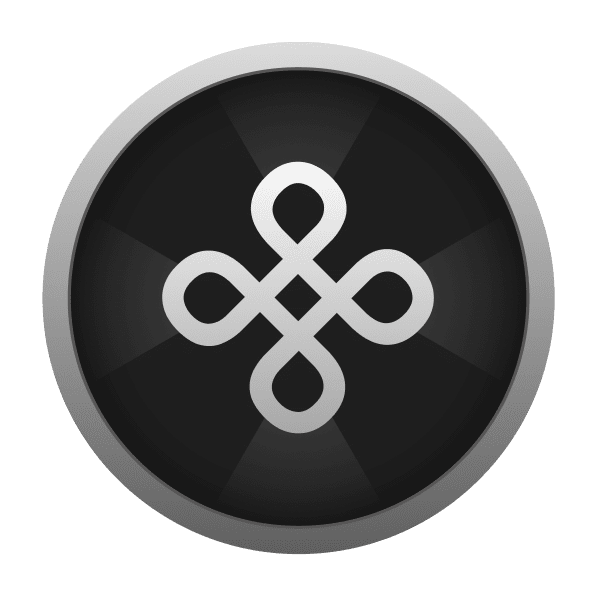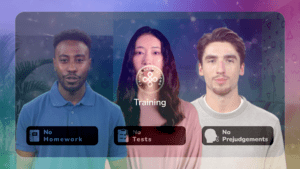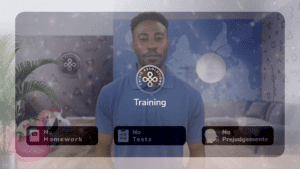Crisis Resolutions Docs Plus (For Friends & Family) is a documentation that provides training guidelines for personal crisis management, as well as tips for general well-being.
Each Chapter includes a set of principles that provide a framework for personal growth and development. These principles are based on years of research and studies by experts in the field of psychology and self-help. Readers can be assured that the methods presented are backed by scientific evidence and have been proven to be effective in improving one’s life.
Furthermore, in addition to the principles, each chapter also includes tips and scientific studies that readers can examine and apply to their daily lives. These tips are designed to help readers internalize and apply the principles in a meaningful way, so that they can experience real change and growth.
Moreover, the benefits of implementing these principles are not limited to personal growth and development. By applying them to their professional lives, individuals can also improve their performance and productivity. They can become more effective leaders, better communicators, and more successful in their careers.
Ultimately, by following these guidelines, individuals can create a better future not only for themselves, but also for those around them. They can contribute to a more positive and thriving community, and make a lasting impact on the world.
What’s the matter?
To handle crises, we can develop good practices through training. This framework helps us improve our personal flexibility, emotional intelligence, decision-making skills, relationships, and ethical responsibility.
Here are some ways to develop these skills:
- #GoodFlexibility: Being adaptable to changes and open to new experiences.
- #GoodSensibility: Having a healthy mindset and understanding our emotions.
- #GoodSustainability: Making sustainable decisions.
- #GoodAccessibility: Having supportive relationships and a support system.
- #GoodCapability: Making ethical decisions and being responsible for our actions.
What Experts say?
According to a study conducted by Kumpfer and Alvarado (2003), individuals who demonstrate personal flexibility, including a positive attitude, are more capable of effectively handling crises.
In addition, a study by Lamond and Daniels (2016) revealed that individuals with high levels of mental sensibility, such as self-awareness and emotional intelligence, are more resilient to stress and better able to handle crises.
Lastly, a study by Linnenbrink-Garcia and Pekrun (2011) found that individuals with a strong sense of ethical capability, including a solid moral compass, are better equipped to handle crises that challenge their values.
Why we do it?
Let’s explore now together, five essential aspects that can help us resolve crises and overcome difficult situations. Each of these aspects represents a Good Life Quest that can help us maintain our well-being in times of crisis.
- The first aspect is #GoodFlexibility, which involves being adaptable and open to change. As Heraclitus, a Greek philosopher, once said, “The only constant in life is change.” Life is unpredictable, and we may face unexpected situations that require us to take a different approach. Therefore, it is essential to be flexible and open-minded to new solutions and ideas. We should be willing to learn and adapt to our changing circumstances.
- The second aspect is #GoodSensibility, which involves taking care of our mental health. As Sigmund Freud, an Austrian neurologist and founder of psychoanalysis, famously said, “The mind is like an iceberg; it floats with one-seventh of its bulk above water.” Mental health is crucial to our overall well-being, and it is essential to prioritize it during a crisis. We must be aware of our emotions and thoughts and seek help when needed. It’s important to take breaks and practice self-care, such as meditation, exercise, and sleeping well.
- The third aspect is #GoodSustainability, which involves creating a stable and sustainable environment for financial growth. As Suze Orman, an American financial advisor, once said, “A big part of financial freedom is having your heart and mind free from worry about the what-ifs of life.” We must create a budget, save money, and plan for the future. This can help us be prepared for unexpected expenses and reduce our stress levels.
- The fourth aspect is #GoodAccessibility, which involves creating a supportive environment. As Maya Angelou, an American poet and civil rights activist, once said, “I’ve learned that people will forget what you said, people will forget what you did, but people will never forget how you made them feel.” We must surround ourselves with people who care about our well-being and who we can rely on during challenging times. We should communicate our feelings and problems with our friends and family and seek their support.
- The fifth and final aspect is #GoodCapability, which involves promoting ethical values and practices. As Mahatma Gandhi, an Indian independence activist, once said, “The difference between what we do and what we are capable of doing would suffice to solve most of the world’s problems.” During a crisis, we must be responsible for our actions and consider their impact on others. We should strive to do the right thing, even if it is difficult.
Remember, these aspects are not just for handling crises; they can help us maintain our well-being and lead a fulfilling life. By being flexible, taking care of our mental health, being financially stable, surrounded by supportive people, and promoting ethical values, we can lead a happier and more fulfilling life.
How to do it
Our Crisis Resolutions Training is a comprehensive, self-paced program designed to equip individuals with the necessary tools and skills to manage crises effectively. We cater to individuals from all walks of life, offering free resources for everyone, as well as premium content for those who wish to practice more seriously. Our business-oriented materials are tailor-made for crisis resolution-oriented entrepreneurs, providing them with the knowledge and expertise to navigate difficult situations that arise in the workplace.
At Crisis Resolutions, we understand that everyone learns differently, which is why we offer a range of learning materials, including guides, video courses, podcasts, and more. Our Training revolves around our Good Ways Model and our Games, which are platforms for personal, social, and professional practice. We believe that practice makes perfect, which is why we provide step-by-step examples of practices in every chapter, as well as tips from experts.
What to do
There are many ways to effectively practice crisis resolution. Our Training provides a routine that can be tailored to fit our personal needs and preferences. We can shape our training in the way that seems most sensible to us.
We approach Good Ways as a Cooperative Game we can be good at, and Play together as if we were playing music.
To Resonate on Good Vibes, here are some tasks for personal crisis resolution based on scientific journals, studies, and other authoritative resources.
Here are the top 10 Tasks for personal crisis resolution:
- Focus on the present moment and avoid dwelling on the past or worrying about the future. This can help reduce stress and anxiety.
- Practice self-care activities such as meditation, exercise, and getting enough sleep.
- Seek support from friends, family, or a mental health professional. Talking to someone about your feelings and problems can help alleviate stress and anxiety.
- Create a budget and plan for the future to reduce financial stress.
- Be open-minded and flexible when faced with unexpected situations or challenges.
- Practice self-compassion and avoid negative self-talk.
- Set realistic goals and prioritize tasks to help manage stress.
- Identify and avoid things that may make stress or anxiety worse.
- Promote ethical values and practices by being responsible for your actions and considering their impact on others.
- Focus on personal growth and learning from the crisis experience.
References
- Kumpfer, K. L., & Alvarado, R. (2003). Family-strengthening approaches for the prevention of youth problem behaviors. American Psychologist, 58(6-7), 457-465.
- Lamond, E., & Daniels, K. (2016). The relationship between emotional intelligence and stress: A review. Journal of Managerial Psychology, 31(2), 327-342.
- Linnenbrink-Garcia, L., & Pekrun, R. (2011). Students’ emotions and academic engagement: Introduction to the special issue. Contemporary Educational Psychology, 36(1), 1-3.




